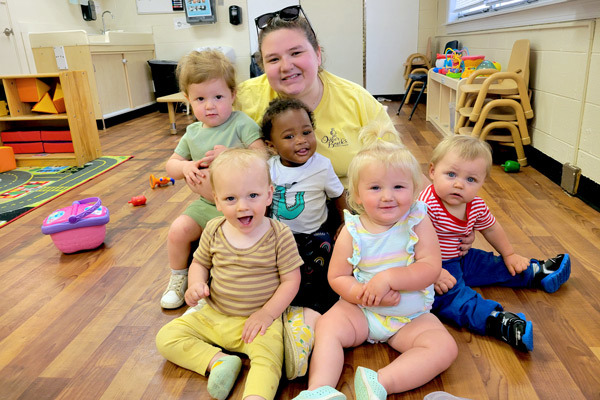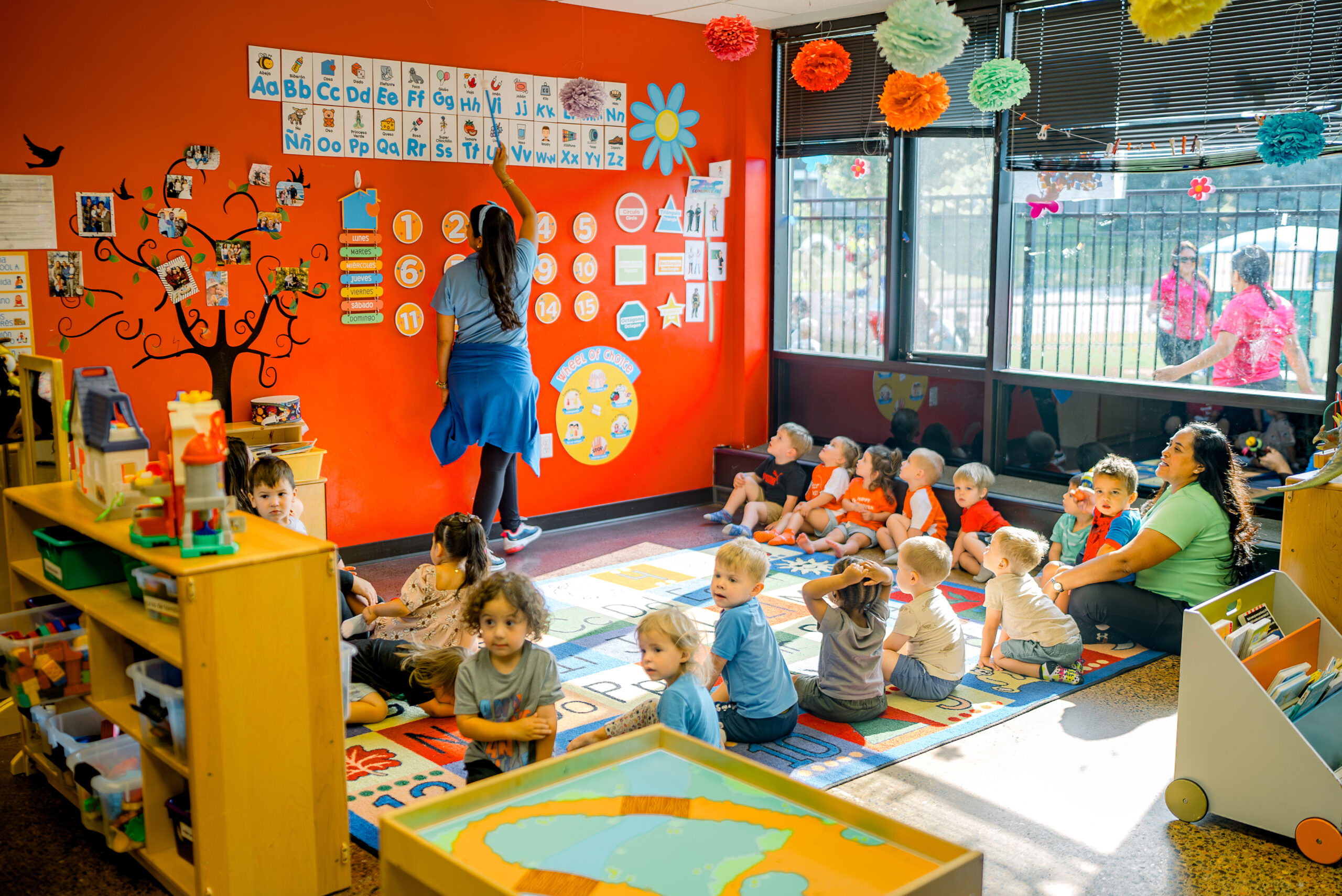Top Advantages Of Choosing Professional And Safe Childcare Near Me
The Role of Childcare in Fostering Social Abilities and Very Early Discovering
Daycare acts as a considerable environment for young kids, promoting crucial social communications that promote very early understanding. In this structured setting, children involve with peers and caregivers, creating essential communication and teamwork abilities. As they browse play and numerous tasks, they learn to fix disputes and construct psychological intelligence. Understanding the nuances of these interactions exposes the extensive effect childcare has on a kid's development, forming their future relationships and scholastic preparedness. What details skills do children get in this setting?
The Value of Social Interaction in Childcare
While many moms and dads identify the significance of early youth education, the function of social interaction in daycare is commonly undervalued. Childcare setups supply kids with very useful possibilities to involve with peers, cultivating essential social skills. During these developmental years, kids find out to browse various social dynamics, such as sharing, cooperation, and dispute resolution. Interacting with diverse age and individualities boosts their capability to adjust to different environments and establish empathy towards others.

Structure Interaction Skills With Play
Play acts as an effective medium for children to build important interaction skills in childcare settings. Through various play tasks, children engage in conversations, express their thoughts, and find out to pay attention to others. Role-playing video games, as an example, encourage them to use language in different contexts, advertising vocabulary development and understanding of social hints.

Storytelling throughout play allows kids to share feelings and ideas, helping them create narrative abilities and confidence in their spoken expressions. In general, play not just serves as an enjoyable pastime however additionally as an important platform for developing the interaction abilities essential for successful social communications in later life.
Encouraging Collaboration and Synergy
Cooperation and teamwork are vital abilities that youngsters can grow in childcare settings. Via numerous team tasks, such as constructing projects or collaborative video games, youngsters learn to share obligations and job towards common goals. These interactions promote an understanding of the relevance of listening to others, working out functions, and endangering when essential.
In day care setups, caregivers often produce chances for children to participate in synergy by motivating them to join group tasks. This not only helps kids create social bonds but likewise grows a feeling of belonging and neighborhood.
As they navigate these cooperative experiences, youngsters obtain useful understandings into the dynamics of functioning with peers. They find out to read more appreciate diverse point of views and acknowledge that each member adds distinctively to the group initiative. Inevitably, these very early lessons in collaboration and teamwork lay the foundation for healthier relationships and reliable partnership in future social and academic setups.
Structured Knowing Activities and Cognitive Development
Structured discovering activities play an important role in promoting cognitive development in young kids (Child Care Center). These tasks, that include problems, storytelling, and hands-on experiments, boost vital reasoning and problem-solving skills. In a childcare setup, structured discovering urges children to engage with their peers, improving their capacity to process information and comprehend numerous principles
Through assisted play and interactive jobs, children establish fundamental skills such as numeracy and literacy. Activities centered around numbers can help kids comprehend mathematical ideas, while narration improves language purchase and understanding. Furthermore, structured discovering enables instructors to analyze developing progress and dressmaker activities to specific learning needs.

Incorporating a varied variety of organized activities not just advertises cognitive development however likewise prepares youngsters for future academic success. By supplying a well balanced atmosphere that promotes exploration and questions, day care programs play a necessary function in shaping the cognitive abilities of young students.
Promoting Emotional Knowledge and Confidence
Emotional knowledge and self-confidence are crucial parts of a kid's development, complementing the cognitive abilities cultivated with structured knowing tasks. In daycare setups, kids are offered with possibilities to reveal their emotions and participate in social interactions, directory which are essential for developing emotional understanding. Through assisted play and group tasks, children discover to identify their sensations, recognize those of others, and create empathy.
In addition, interaction with peers and caretakers aids to cultivate self-confidence and resilience. Positive support and encouragement from adults encourage children to take dangers and face obstacles, promoting a feeling of accomplishment. As they navigate social characteristics, kids build confidence in their abilities to connect, team up, and resolve problems - Childcare North York. This caring environment permits the steady growth of emotional intelligence, which is crucial for future interpersonal relationships and general health. Therefore, day care plays a significant duty in promoting both emotional knowledge and self-confidence in young kids
Regularly Asked Concerns
How Can Parents Pick the Right Day Care for Their Child?
Parents must think about factors such as area, personnel qualifications, safety criteria, curriculum, and examines from other parents when selecting the appropriate childcare for their youngster, guaranteeing it lines up with their basics child's developmental demands and family worths.
What Age Is Ideal for Beginning Childcare?

Just How Does Day care Effect Children's Actions at Home?
Daycare commonly favorably influences kids's actions at home by improving social abilities, promoting self-reliance, and motivating psychological policy (Child Care Center). Because of this, kids may display better communication and participation, leading to even more unified family dynamics
Exist Any Kind Of Downsides to Daycare Participation?
Yes, there are drawbacks to childcare presence, consisting of possible separation stress and anxiety, direct exposure to ailments, and inconsistent caregiving. These factors can impact a kid's psychological health and change at home, affecting total family members dynamics.
Exactly How Can Moms And Dads Assistance Social Abilities Discovered at Day Care?
Parents can support social skills learned at daycare by assisting in playdates, motivating cooperative activities, modeling positive communications, reviewing sensations, and enhancing sharing and interaction in your home, consequently improving their child's social development and self-confidence.
Childcare offers as a considerable atmosphere for young kids, helping with important social interactions that advertise very early discovering. Day care settings provide youngsters with invaluable opportunities to engage with peers, fostering essential social abilities. Play offers as a powerful medium for youngsters to construct critical interaction abilities in day care settings. In childcare setups, youngsters are supplied with chances to express their emotions and involve in social communications, which are essential for constructing psychological understanding. Daycare usually favorably influences children's behavior at home by boosting social skills, promoting independence, and encouraging psychological guideline.